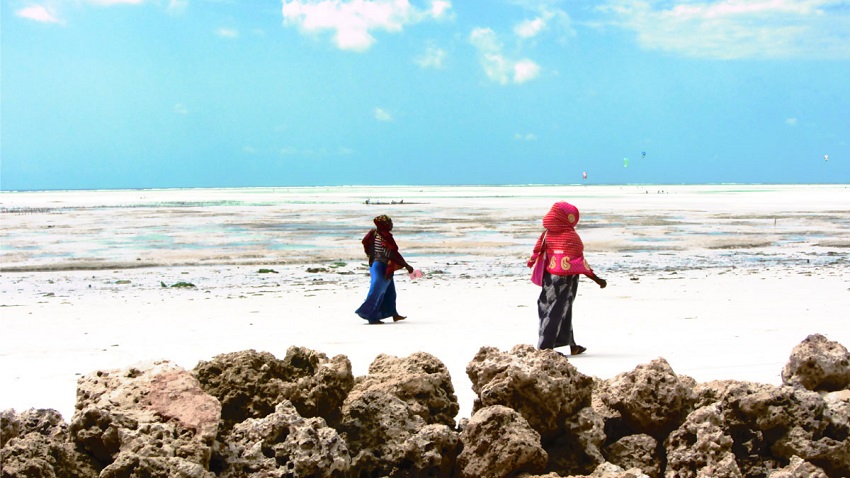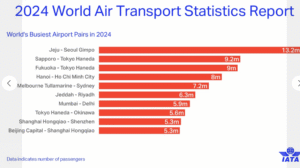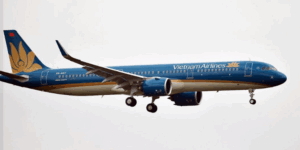Global economy could lose over $4 Trillion due to COVID-19 impact on tourism

Travel Biz News —
The crash in international tourism due to the coronavirus pandemic could cause a loss of more than $4 trillion to the global GDP for the years 2020 and 2021, according to an UNCTAD report released in Geneva .
The estimated loss has been caused by the pandemic’s direct impact on tourism and its ripple effect on other sectors closely linked to it.
The report, jointly presented with the UN World Tourism Organization (UNWTO), says international tourism and its closely linked sectors suffered an estimated loss of $2.4 trillion in 2020 due to direct and indirect impacts of a steep drop in international tourist arrivals.
A similar loss may occur this year, the report warns, noting that the tourism sector’s recovery will largely depend on the uptake of COVID-19 vaccines globally.
With COVID-19 vaccinations being more pronounced in some countries than others, the report says, tourism losses are reduced in most developed countries but worsened in developing countries.
COVID-19 vaccination rates are uneven across countries, ranging from below 1% of the population in some countries to above 60% in others.
According to the report, the asymmetric roll-out of vaccines magnifies the economic blow tourism has suffered in developing countries, as they could account for up to 60% of the global GDP losses.
The tourism sector is expected to recover faster in countries with high vaccination rates, such as France, Germany, Switzerland, the United Kingdom and the United States, the report says.
But experts don’t expect a return to pre-COVID-19 international tourist arrival levels until 2023 or later, according to UNWTO.
The main barriers are travel restrictions, slow containment of the virus, low traveller confidence and a poor economic environment.
Up to $1.8 trillion loss expected in 2021
A rebound in international tourism is expected in the second half of this year, but the UNCTAD report still shows a loss of between $1.7 trillion and $2.4 trillion in 2021, compared with 2019 levels.
The results are based on simulations that capture the effects of international tourism reduction only, not policies such as economic stimulus programmes that may soften the pandemic’s impact on the sector.
The report assesses the economic effects of three possible scenarios – all reflecting reductions in international arrivals – in the tourism sector in 2021.
The first one, projected by UNWTO, reflects a reduction of 75% in international tourist arrivals – the most pessimistic forecast – based on the tourist reductions observed in 2020.
In this scenario, a drop in global tourist receipts of $948 billion causes a loss in real GDP of $2.4 trillion, a two-and-a-half-fold increase. This ratio varies greatly across countries, from onefold to threefold or fourfold.
This is a multiplier and depends on the backward linkages in the tourism sector, including the unemployment of unskilled labour, according to the report.
The second scenario reflects a 63% reduction in international tourist arrivals, a less pessimistic forecast by UNWTO.
And the third scenario, formulated by UNCTAD, considers varying rates of domestic and regional tourism in 2021.
It assumes a 75% reduction of tourism in countries with low vaccination rates, and a 37% reduction in countries with relatively high vaccination rates, mostly developed countries and some smaller economies.
Job losses across countries
According to the report, the reduction in tourism causes a 5.5% rise in unemployment of unskilled labour on average, with a high variance of 0% to 15%, depending on the importance of tourism for the economy.
Labour accounts for around 30% of tourist services’ expenditure in both developed and developing economies. Entry barriers in the sector, which employs many women and young employees, are relatively low.
Losses worse than previously expected
In July last year, UNCTAD estimated that a four- to 12-month standstill in international tourism would cost the global economy between $1.2 trillion and $3.3 trillion, including indirect costs.
But the losses are worse than previously expected, as even the worst-case scenario UNCTAD projected last year has turned out to be optimistic, with international travel still low more than 15 months after the pandemic started.
According to UNWTO, international tourist arrivals declined by about 1 billion or 73% between January and December 2020. In the first quarter of 2021, the UNWTO World Tourism Barometer points to a decline of 88%.
Developing countries have borne the biggest brunt of the pandemic’s impact on tourism. They suffered the largest reductions in tourist arrivals in 2020, estimated at between 60% and 80%.
The most-affected regions are North-East Asia, South-East Asia, Oceania, North Africa and South Asia, while the least-affected ones are North America, Western Europe and the Caribbean.
“The world needs a global vaccination effort that will protect workers, mitigate adverse social effects and make strategic decisions regarding tourism, taking potential structural changes into account,” UNCTAD Acting Secretary-General Isabelle Durant said.
UNWTO Secretary-General Zurab Pololikashvili said: “Tourism is a lifeline for millions, and advancing vaccination to protect communities and support tourism’s safe restart is critical to the recovery of jobs and generation of much-needed resources, especially in developing countries, many of which are highly dependent on international tourism.” – Inputs from UNWTO/ UNCTAD
1 July 2021
Image by Fabien / UNCTAD














